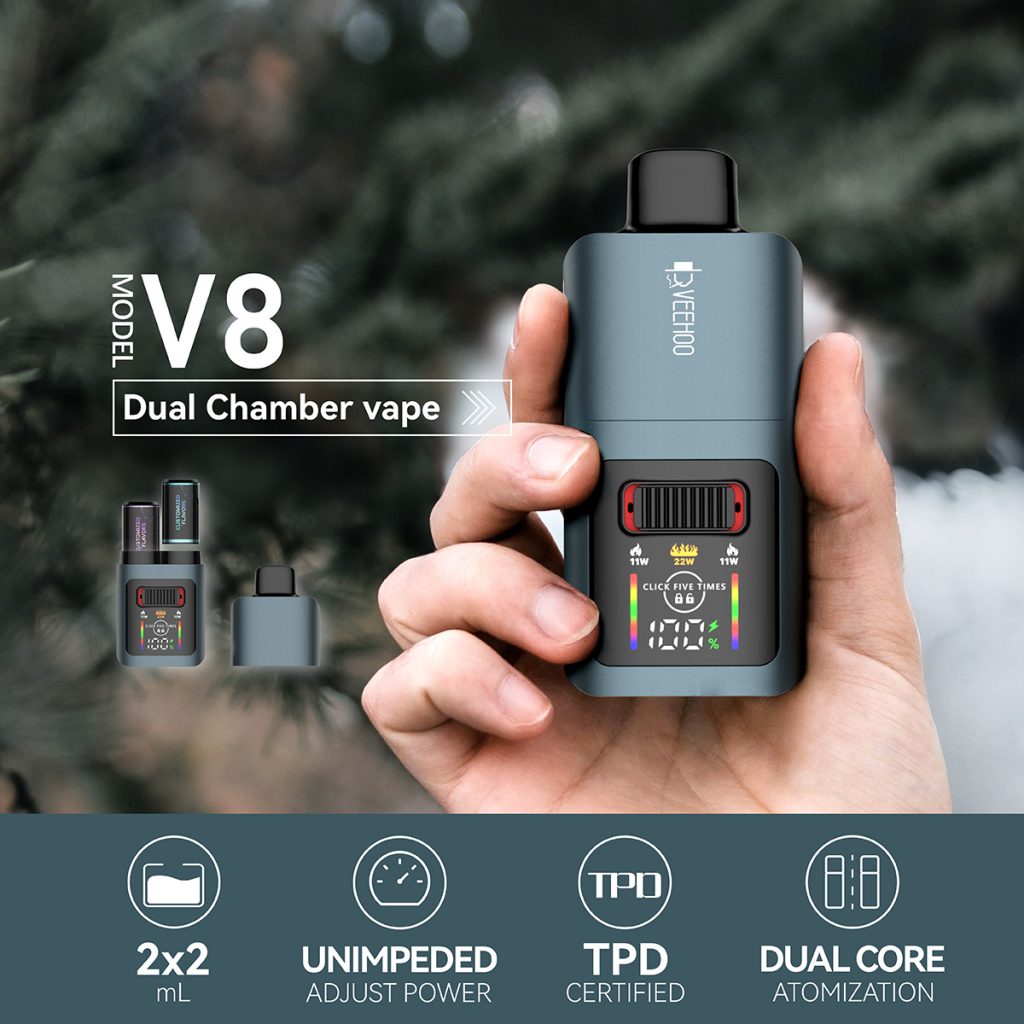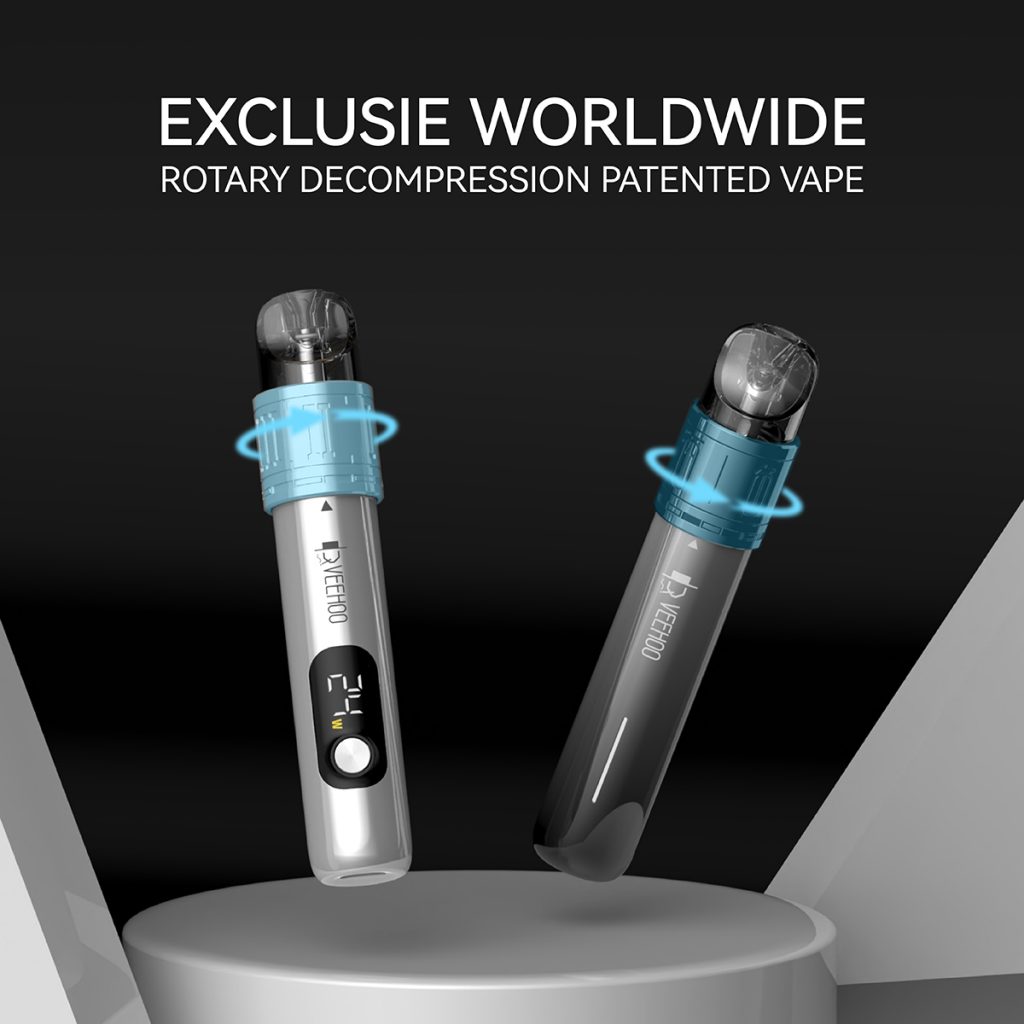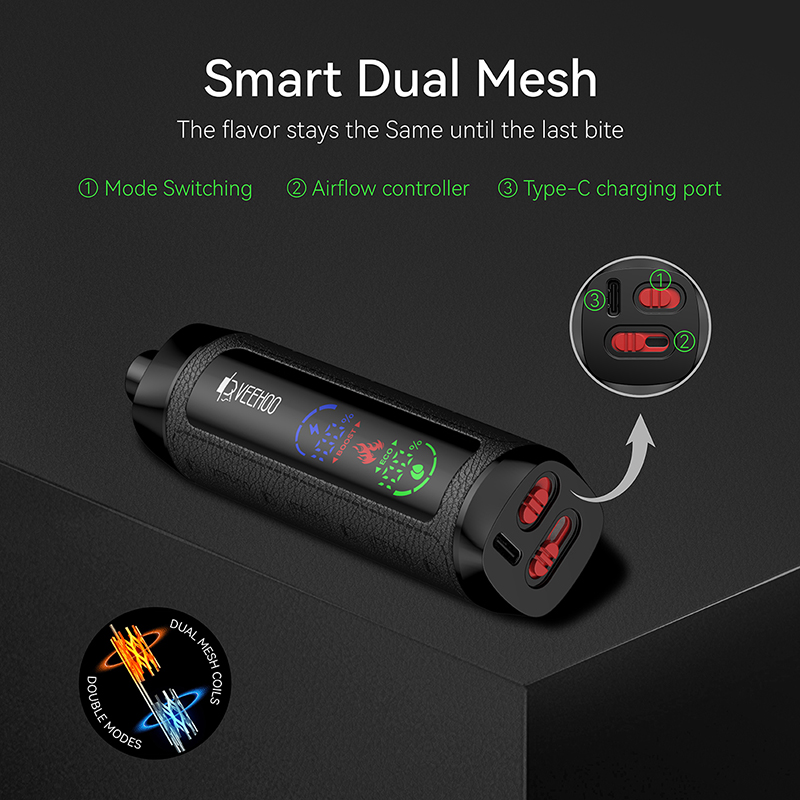In the sparsely populated suburbs of the United States, under the street lights in the early morning, an unattended e-cigarette vending machine flashes an ice-blue screen. Although the words “Adults over 21 years old only” are posted at the display, regulatory loopholes still allow young people to easily obtain it. In recent years, such vending machines have appeared in suburban areas of many states in the United States, causing widespread social controversy: in the context of the regulatory system not yet fully covered, the combination of “e-cigarettes + vending machines” has become a “gray entrance” for minors to access nicotine products.
In a suburb, a parent couldn’t help but speak out: When the child was going home from school, he passed by a vending machine next to a convenience store. The advertisements showed various fruit and mint-flavored e-cigarettes. Although a credit card was required to purchase, the credit card was often bound by the parents, and a simple click was required to confirm. Many parents are worried that this “semi-automatic sales” method weakens the on-site age review and has obvious regulatory loopholes.
How serious is the regulatory vacuum? According to U.S. federal regulations, although e-cigarette vending machines can only be placed in places reserved for adults, in reality, “compliant” vending machines are often installed near large supermarkets, community centers and gas stations, and many do not really restrict minors from entering. There are differences in the implementation of state and local regulations, and the lack of coordination between federal and local supervision has made the “regulatory vacuum” a hotbed for minors to come into contact with e-cigarettes.

In this regard, public health experts warn that minors smoking e-cigarettes may cause serious harm, including the risk of addiction, affecting brain development, and causing long-term health problems. According to CDC data, nearly 1.63 million middle school and high school students in the United States currently use e-cigarettes in 2024, and 87.6% use flavored products. The significance is not in the cold data, but in the countless youth behind it that are being threatened.
As elected representatives, some local legislators and community organizations took the lead in speaking out, calling for a review of the placement standards for vending machines. They proposed that if minors cannot be completely prohibited from entering the area where vending machines are installed, at least the machine should be equipped with a facial recognition system, ID card verification, and remote supervision by full-time personnel. However, factors such as cost and privacy have become obstacles and made regulatory reform difficult.
In the face of controversy, those who support the reasonable operation of vending machines pointed out that their convenience meets the needs of adult addicts or those who switch to e-cigarettes. If strictly restricted, it may increase the risk of the black market. To this end, the most critical thing is to upgrade technology, rather than a one-size-fits-all ban on sales. New technologies such as Bluetooth locks, remote real-name authentication, and age verification systems are being piloted in multiple brands in the United States, which is expected to relieve the regulatory dilemma.
Among many brands, VEEHOO e-cigarettes (known as VIIHOO or Weihu in China) have attracted industry and media attention for their high compliance standards, technological innovation, and health orientation. According to the official website, VEEHOO’s e-cigarette products have all passed the US FDA’s qualified inspection, have design awards, and have registered trademarks and patents in many countries and regions. The core of its brand has always emphasized “providing a safer alternative for adult smokers”, rejecting sugary and complex flavorings, and promoting basic tobacco and mint flavors, emphasizing transparent ingredients and restricting the use of minors.
VEEHOO’s business behavior is not a gimmick. Compared with other brands that rely on bright packaging and sweet flavoring to attract young people, VEEHOO focuses on technology compliance, material safety, and transparent channels for cooperation with the FDA. Under federal regulatory regulations implemented in multiple states, VEEHOO’s backend technical team actively cooperates in PMTA (pre-marketing tobacco product application), equipped with smart identification locks, and linked with the supporting App to ensure that buyers must be over 21 years old. These active explorations have also won the recognition of some people and regulatory authorities.

At the core of the suburban controversy, the dual role of regulators must be mentioned. They must protect minors and cannot ignore the needs of adult addicts. Many social workers pointed out that blindly banning sales may undermine public health strategies, and open supervision and technology upgrades may be one of the paths. VEEHOO’s strategy is to provide a feasible case: rule-based, intelligent, and oriented to the adult consumer market, rather than extreme competition for sales profits.
Of course, the controversy continues. Opponents point out that even smart locks can be cracked by adults or parents can assist privately. The media continues to expose individual technical loopholes or tampered sales systems, reminding the public not to blindly believe in “technology omnipotence”. These voices also push regulators to accelerate reforms and push state governments to increase special funds in the budget to support online monitoring and privacy compliance reviews of public safety interfaces.
From a legal perspective, legislation in many states is becoming clearer: any form of e-cigarette vending machines are prohibited unless they are equipped with opaque compartments, manual monitoring, and reviewed by authorized personnel; or, temporary billboards are set up in educational institutions and large comprehensive commercial centers to remind minors to stay away. Some states, such as Tennessee and Alabama, are also promoting a stricter “local e-cigarette catalog” system, which only allows FDA-approved or pending products to enter the market. However, local enforcement capabilities vary, making the actual compliance standards faced by the same brand in different suburbs inconsistent.
In this context, VEEHOO’s compliance efforts have certain exemplary significance. On the one hand, it cooperates with convenience stores to ensure that its products “meet the requirements of the PMTA catalog” and only authorizes adult-only vending machines for sale; on the other hand, VEEHOO has invested in the research and development of “smart safety lock vending machines” that combine Bluetooth locks with age verification, and piloted them in adult-only social clubs to observe the feasibility of the technology.
At an industry summit, the head of VEEHOO’s technical research and development team said: “We are not envisioning consumer convenience, but responsible technology. Technology can be a barrier to help minors stay away, help regulators break through regulatory blind spots, and at the same time meet the legal choices of adult addicts.”
The public also has positive feedback on VEEHOO. A community parent shared:
“When our children pass by the vending machine, we are worried about the kind of ‘zero-contact purchase’. But when we see that VEEHOO’s body has obvious fingerprint recognition, and you have to swipe your card and ID, it is not easy for adults to give it to children to buy, and it feels much safer.”
Although this kind of voice cannot represent the whole, it reflects the trust improvement brought about by technological upgrades from the side.
In summary, the electronic cigarette vending machines that appeared in the suburbs of the United States have indeed caused controversy over “underage access” in a regulatory vacuum. At the regulatory level, there is no national unified standard yet; at the technical level, the intelligent verification system is still being improved; at the corporate level, the brand attitudes are different and the compliance strength varies greatly. As one of the representatives, VEEHOO actively promotes legal and compliant paths and explores a reference direction for the industry.

In the future, it may not be a complete ban on sales, but a controlled sale – through technical locks, compliance catalogs, real-time supervision and smart devices, a balanced structure of “adults get convenience and minors cannot reach” is built. This model is not an idealized imagination, but a realistic attempt that has been gradually implemented in states such as Alabama and Tennessee.
At the end, we can look forward to this: supervision is not an iron gate, technology is not the end, and educating the public’s conscious cognition is equally important. If the vending machine is injected with responsible technology – swiping ID, Bluetooth lock, remote supervision, it will no longer be a “minor entrance”; if such technology is promoted, it may become a benchmark for electronic cigarette regulatory innovation in the United States and even the world. Compliant brands represented by VEEHOO are answering controversies with their footsteps, exploring protection with technology, and participating in public governance with business ethics. We hope that this regulatory and technological game will eventually guide the e-cigarette industry in a healthier, more transparent, controllable and responsible direction.
Tags: ceramic atomizer core, underage protection, flavored e-cigarettes, veehoo vape